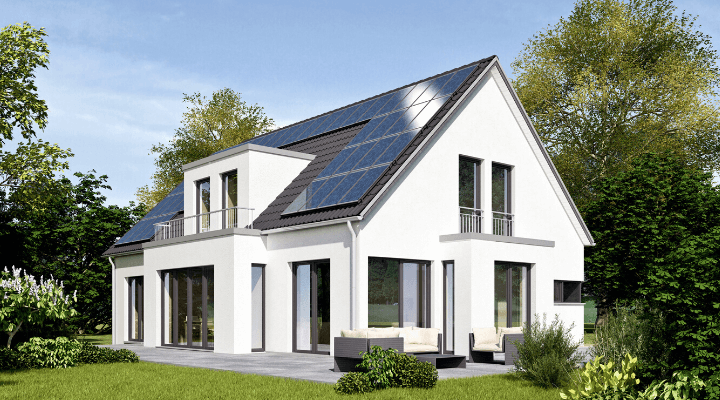The scope and scale of global warming can feel overwhelming. Fortunately, there’s lots that you can do at home to lessen your personal impact on the environment and help save the planet. Buildings emit more than one-third of the world’s greenhouse gasses and use almost 40% of the world’s energy (most of it for heating and hot water) so what you do with your home could make a big impact on the environment. Not only will these five home improvement projects lower your carbon footprint, they can also save you money.
Changing Lightbulbs
One of the easiest ways to help make your home more efficient is to swap your old lightbulbs with new, energy efficient bulbs. Cooler burning, CFL and LED bulbs now come in a wide range of colors and light quality that can match each room’s needs. According to a 2017 study, high efficiency bulbs reduced carbon emissions by half a billion tons!
While they might cost a little more than traditional bulbs up front, the US Department of Energy says ENERGY STAR approved lights can save homeowners upwards of $75 per year. They also last much longer than traditional bulbs, so you won’t need to change them as often.
Composting
Every year the US produces approximately 133 billion pounds of food waste. According to the EPA, not only does that organic waste produce CO2, it also releases methane, a potent greenhouse gas into the atmosphere.
So instead of throwing out your leftovers or food scraps, plan on composting them. It’s an easy way to up your gardening game, helping your soil retain moisture and suppress plant diseases and pests while saving you money on chemical fertilizers.
Solar
Electronics, lights and appliances use up a little more than a quarter of the average New York home’s energy consumption. Instead of getting all that energy from power plants that burn gas, oil or even coal, solar offers a way to power homes with 100% clean and renewable energy from the sun.
Rooftop panels and/or ground mounted solar arrays are more affordable than ever before thanks to generous government incentives and can even add value to your home. But even if your property doesn’t get the right amount of exposure to have on-site panels, New York state residents can choose to buy into community solar.
Community solar is an array of panels installed in a sunny location that anyone in the area can buy into and get credits toward their electricity bills. Many New York homeowners save 10% on their energy bills without the major investment of installing panels, all while reducing their carbon footprint!
Hot Water Heat Pump
Most homeowners don’t think about their water heater until they wind up taking a cold shower. But did you know that hot water heating uses 17% of the average American home’s energy consumption?
If your home’s hot water is heated by oil, gas or propane, that means a good chunk of your heating bill goes down the drain when you wash dishes or take showers. The same can be said for your energy bill if you have an electric water heater.
Fortunately, heat pump technology has made hot water heating more efficient than ever. According to the EPA, a hot water heat pump saves the average homeowner $330 a year in operating costs, all while reducing your home’s impact on the environment!
Geothermal Heating and Cooling
According to the US Energy Information Administration, heating alone makes up 46% of most homes’ energy consumption. For the majority of homeowners that energy comes from burning fuel oil, propane or natural gas on site.
That can produce dangerous carbon monoxide in homes and releases 441 million tons of CO2 into the atmosphere every year. On top of that, we pay an arm and a leg in heating bills for the privilege!
A Dandelion geothermal system frees homeowners from fossil fuels by using the ambient temperature of the earth in your yard to provide super-efficient heating and cooling. Because it’s so efficient, you can completely eliminate your fossil fuel heating system. For the vast majority of homeowners, converting your home to geothermal is the most significant way to reduce your carbon footprint.
